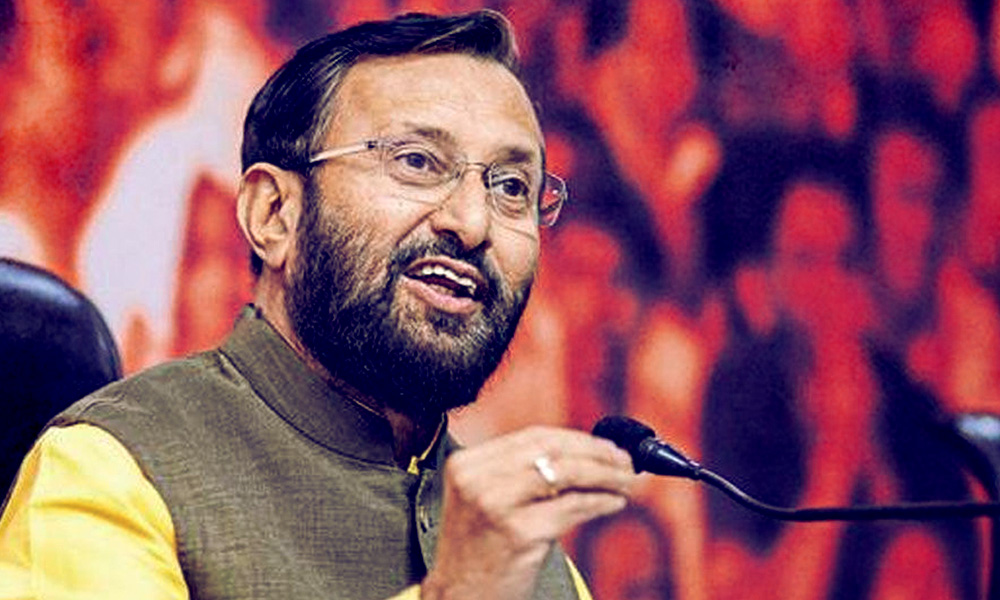
Image Credit: Aajkaal
'Historical Blunder Was Corrected' With Demolition Of Babri Masjid': Union Minister Prakash Javadekar
Writer: Navya Singh
Navya writes and speaks about matters that often do not come out or doesn’t see daylight. Defense and economy of the country is of special interest to her and a lot of her content revolves around that.
Uttar Pradesh, 25 Jan 2021 10:27 AM GMT | Updated 25 Jan 2021 10:31 AM GMT
Editor : Shweta Kothari |
A broadcast turned digital journalist, Shweta Kothari heads the newsroom at The Logical Indian. She has previously worked with CNBC and NewsX as a news anchor and senior correspondent. Shweta holds a masters degree in journalism from the university of Sussex, UK and started her career with work placement with BBC in Scotland.
Creatives : Rajath
A free spirit who find meaning in life with the virtue of creativity and doing job par its excellence, animal lover and traveller by heart.
"We were sleeping there a night before," the BJP leader recalled. "The three domes of Babri Masjid were visible. Next day the world saw how a historical blunder was removed."
Union minister Prakash Javadekar on Sunday, January 24, said that a "historical blunder" was corrected on December 6, 1992, when a group of Hindu extremists demolished the Babri Masjid in Ayodhya.
The incident led to violent riots across the country leaving around 2,000 people dead, most of them Muslims, Scroll.in reported.
"We were sleeping there a night before," the BJP leader recalled. "The three domes of Babri Masjid were visible. Next day the world saw how a historical blunder was removed."
"When Babur came to India he chose to destruct Ram temple in Ayodhya as he understood that the living force of the country rested there," the Union minister said. He added that the disputed structure built after the alleged destruction of a temple "was not a mosque because no worship happened there".
It is important to note that there is no historical evidence that the Babri Masjid was built by demolishing a temple.
The Supreme Court, in its verdict in November 2019, had rebuffed the contention that the mosque was built over a site of a demolished temple.
The BJP leader said that the Ram temple in Ayodhya will be a symbol of unity and people from all faiths backed its construction. "Ram unifies the country and symbolises the unity of the country. The Ram Janmabhoomi movement was a movement for the country's self-respect," he said.
The BJP leader said the Supreme Court judgement paving the way for the construction of the Ram temple led to a wave of joy across the country. "I am happy that lord Ram is no longer claimed by one religion and has become a symbol of pride for the entire country," Javadekar added. "Even people of other religions favour construction of the Ram temple in Ayodhya."
In a verdict in November 2019, the top court had ruled that the disputed land in Ayodhya would be given to a government-run trust for the construction of a Ram temple. The court had also said that the demolition of Babri Masjid was illegal and ordered the government to take an alternative plot of land to build a mosque.
The Ram temple's construction began in August, two weeks after PM Modi laid its foundation stone in Ayodhya on August 5.
Also Read: Galwan Valley Hero Col Santosh Babu To Be Posthumously Awarded Mahavir Chakra On Republic Day
 All section
All section














